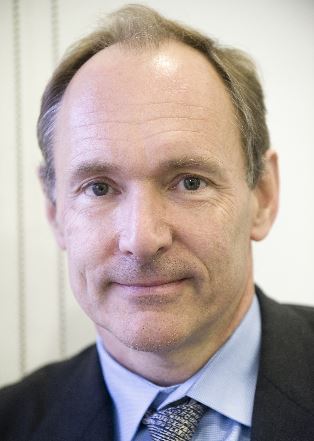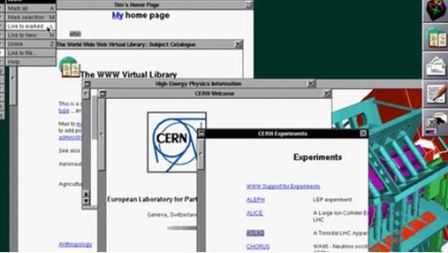It is hard to believe, but we are coming up on the 20th anniversary of the creation of the worldwide web, aka the Internet as we experience it, by Professor Sir Tim Berners-Lee while he was working at the European Organization for Nuclear Research (CERN).
In recognition of the historical significance of the Web’s impact on modern life, which has been transformed in the past 20 years, the good folks at CERN realized that the hardware and software that went into development of the very first website needed to be preserved for posterity. As a result they have initiated a project to re-create that first site.
As Dan Noyes CERN web manager told BBC News, “I want my children to be able to understand the significance of this point in time: the web is already so ubiquitous - so, well, normal - that one risks failing to see how fundamentally it has changed…We are in a unique moment where we can still switch on the first web server and experience it. We want to document and preserve that."

Professor Sir Tim Berners-Lee
A visit to the CERN site that discusses the restoration project says it all simply and eloquently:
This project aims to preserve some of the digital assets that are associated with the birth of the web.
For a start we would like to restore the first URL - put back the files that were there at their earliest possible iterations. Then we will look at the first web servers at CERN and see what assets from them we can preserve and share. We will also sift through documentation and try to restore machine names and IP addresses to their original state. Beyond this we want to make http://info.cern.ch - the first web address - a destination that reflects the story of the beginnings of the web for the benefit of future generations.
Feel free to browse through the site. It is being used by the restoration team to document resources, ideas and leads.

A screen shot from the first browser
As others writing about the project, this is not merely a modern version of an archeological dig. While it is obviously very important to replicate as close as possible the technology involved, the goal here is also to use the site to help people understand the philosophy behind its development. The original CERN team had a firm belief that there should be universal and free access to information. The idea was that we all have the opportunity to improve our lives because knowledge really is power.
The interesting thing about that very simple idea is how disruptive it would turn out to be.
No aspect of modern life has gone untouched, and in most cases thoroughly transformed or re-invented by virtue of what has become ubiquitous access to the Internet. And, while we live daily with the fact that as with nuclear fission and fusion, CERN’s main focus ironically, there are good things and bad things associated with scientific breakthroughs that totally change the world. This includes both the intended consequences as well as the unintended ones.
That said, even with today’s focus on the government’s clamping down on free speech on the net, impressionable people having access to hateful speech and the tools to create physical, virtual and emotional havoc, it is almost unimaginable how we would all manage personally and professionally without the web. It is arguably the greatest value creation engine in history.
It is for the dual reasons of preserving an accurate historical record of the birth of the Web and leaving a legacy as to the philosophy behind its development the project is so important. For those of us of a certain age who may have experienced that first website, it is also why we should lend CERN a hand in the project and take them up on their invitation to get involved. Here is how in CERN’s own words:
We'd really love to know more about visitors, such as yourself, who come to the first website. Knowing something about you would help us to pitch the resources on http://info.cern.ch at the right level and to include things that interest you. Tell us about yourself…Email us at [email protected]...Reach us on @thefirstwebsite.
You can help keep history alive.
Edited by
Alisen Downey